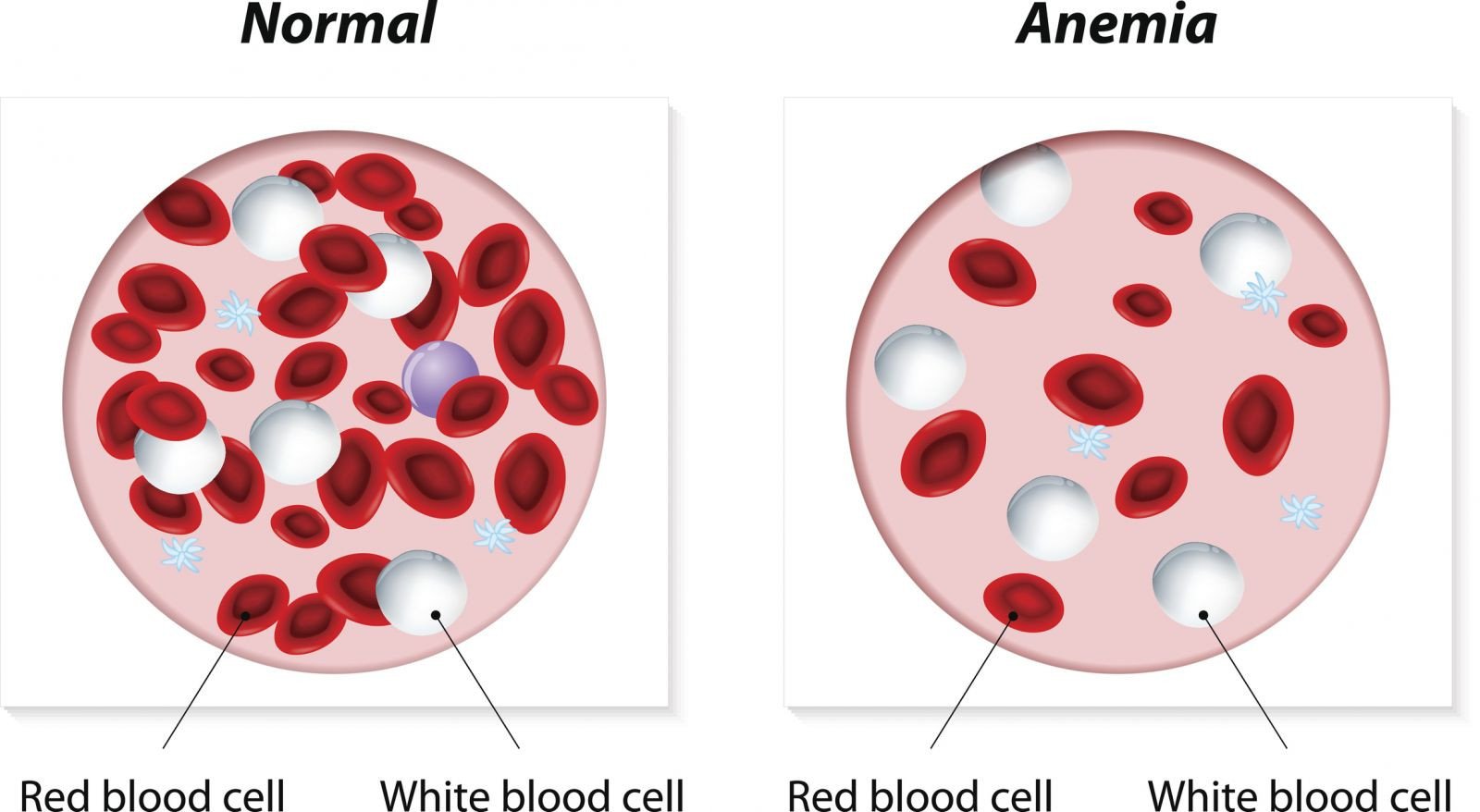Anemia is a condition where your body doesn’t have enough healthy red blood cells to carry oxygen to your tissues. This can make you feel tired, weak, and short of breath. It happens when you either don’t produce enough red blood cells, lose them too quickly, or they’re destroyed faster than they can be replaced.
Common causes include:
- Iron deficiency: Not enough iron, often due to poor diet, blood loss, or pregnancy.
- Vitamin deficiencies: Lack of vitamin B12 or folate.
- Chronic diseases: Conditions like kidney disease or autoimmune disorders.
- Blood loss: From injury, surgery, heavy periods, or internal bleeding.
Symptoms:
- Fatigue and weakness
- Pale skin
- Shortness of breath
- Dizziness or lightheadedness
- Cold hands and feet
- Fast or irregular heartbeat
How to treat Anemia
Treating anemia in just three days isn’t typically possible, as improving iron levels and red blood cell count usually takes weeks. However, you can take steps to boost your energy and start the recovery process quickly. Here’s what you can do:
- Iron-Rich Foods: Eat foods high in iron, like:
- Animal sources: Liver, red meat, poultry, and fish.
- Plant sources: Spinach, kale, lentils, beans, tofu, and fortified cereals.
- Vitamin C Boost: Take vitamin C or eat citrus fruits, bell peppers, or tomatoes to help your body absorb iron better.
- Iron Supplements: Take iron supplements as prescribed by a doctor. Ferrous sulfate is commonly used and works best on an empty stomach or with vitamin C.
- Folate and B12: Eat foods rich in folate (leafy greens, avocado, beans) and B12 (meat, eggs, dairy) to support red blood cell production.
- Rest: Prioritize sleep and avoid strenuous activities to reduce fatigue while your body recovers.
If anemia is severe, a doctor might recommend treatments like iron infusions or blood transfusions, which can show faster results. Would you like me to help create a meal plan or find the best iron supplements?




